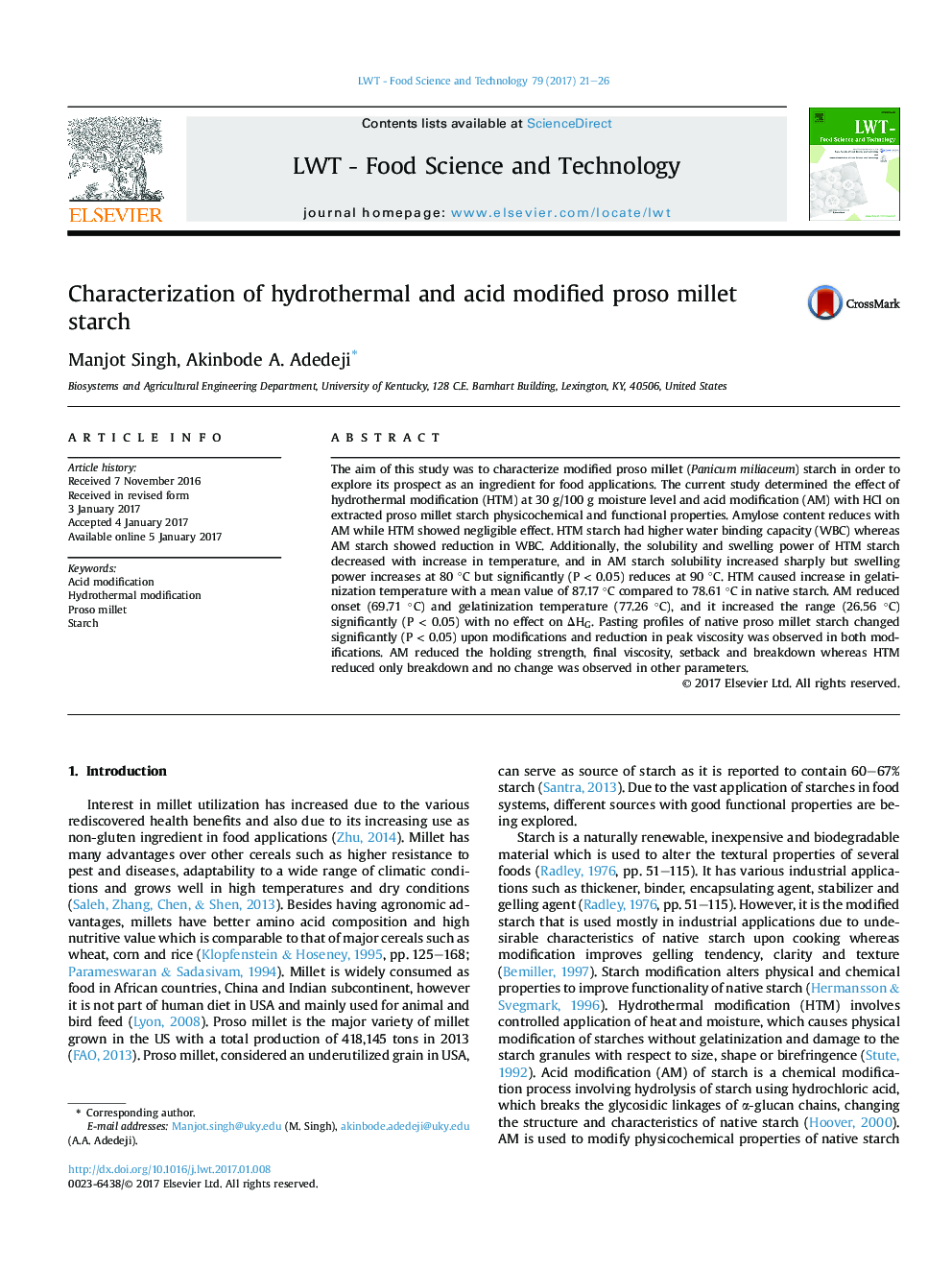| Article ID | Journal | Published Year | Pages | File Type |
|---|---|---|---|---|
| 5768742 | LWT - Food Science and Technology | 2017 | 6 Pages |
â¢Provides knowledge of proso millet starch behavior under different modifications.â¢Reduction in amylose content upon acid modification was observed.â¢Significant changes in functional, thermal and pasting properties were observed.â¢Modifications showed effect on retrogradation rates.
The aim of this study was to characterize modified proso millet (Panicum miliaceum) starch in order to explore its prospect as an ingredient for food applications. The current study determined the effect of hydrothermal modification (HTM) at 30 g/100 g moisture level and acid modification (AM) with HCl on extracted proso millet starch physicochemical and functional properties. Amylose content reduces with AM while HTM showed negligible effect. HTM starch had higher water binding capacity (WBC) whereas AM starch showed reduction in WBC. Additionally, the solubility and swelling power of HTM starch decreased with increase in temperature, and in AM starch solubility increased sharply but swelling power increases at 80 °C but significantly (P < 0.05) reduces at 90 °C. HTM caused increase in gelatinization temperature with a mean value of 87.17 °C compared to 78.61 °C in native starch. AM reduced onset (69.71 °C) and gelatinization temperature (77.26 °C), and it increased the range (26.56 °C) significantly (P < 0.05) with no effect on ÎHG. Pasting profiles of native proso millet starch changed significantly (P < 0.05) upon modifications and reduction in peak viscosity was observed in both modifications. AM reduced the holding strength, final viscosity, setback and breakdown whereas HTM reduced only breakdown and no change was observed in other parameters.
